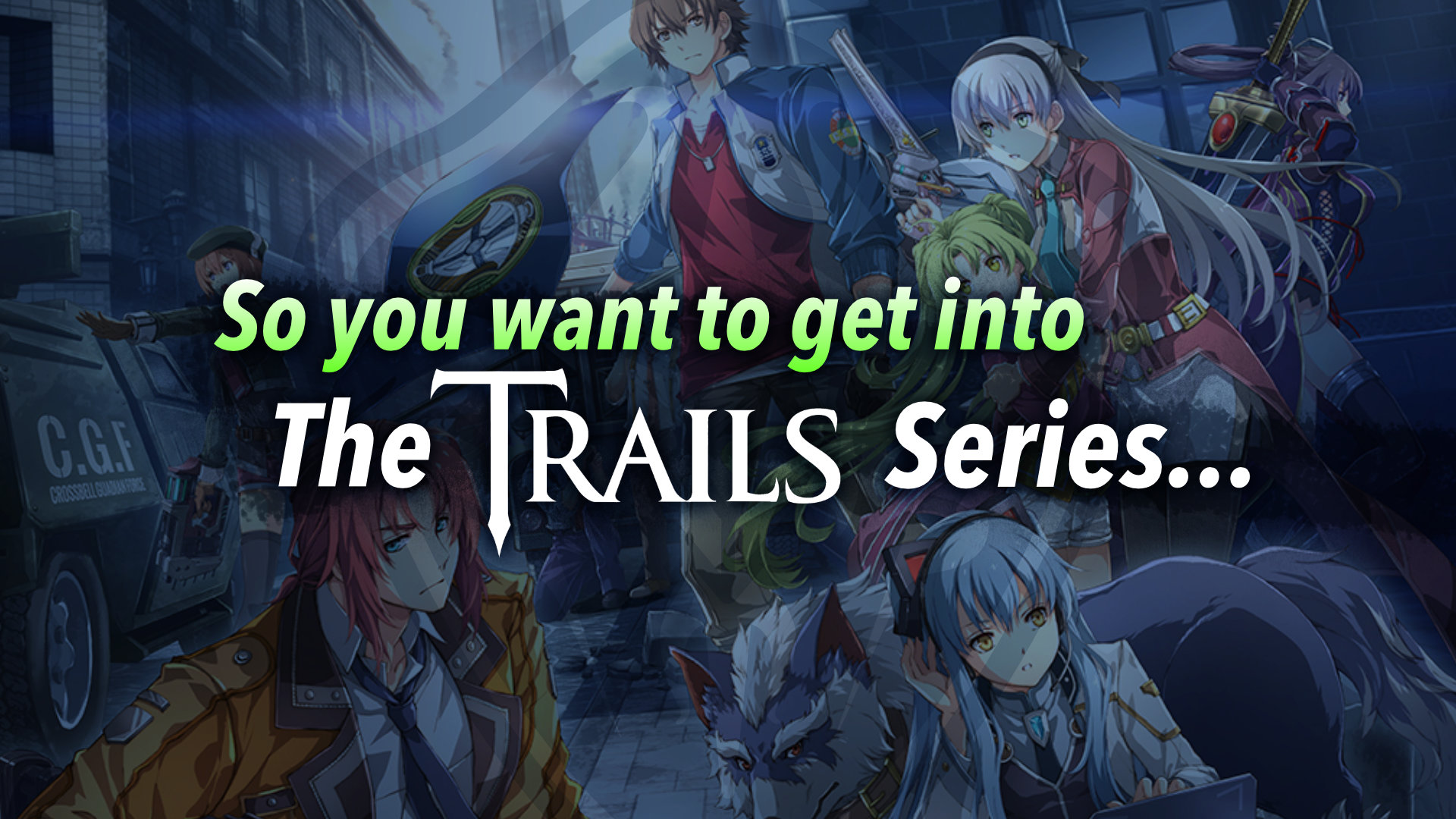Some RPGs get the attention and recognition they rightly deserve. Some RPGs are lesser known in the gaming world, but you still find many who recognize them by name. And then there are RPGs that fly under the radar and live in obscurity within their small niche of fans, waiting for that one breakout game to launch them into stardom. But I am not here to tell you the story of those games; I am here to tell you about an RPG series many have been missing out on since 2004, and of course, I am talking about the Trails series.
With Trails from Zero, Trails to Azure, Trails into Reverie, and Trails through Daybreak recently released in the West, I find myself asked by many people while streaming for the site, “What is this awesome-looking series?”, “How do I get into this series?”, “Which game do I start with?”, “Can I start with Azure?” and plenty of other questions. Now I love to talk about Trails as much as the next fan of the series, but I realize it may be easier if we have something down in writing so that people can refer back to it. So in this article, I will go over the origins of the series, why you might want to play it, and then give you an idea of what order to play the games in.
What Is Trails/Kiseki?
Developed by Nihon Falcom, the Trails series (known as the Kiseki series in Japan) is a story-focused, turn-based RPG series launched on PC way back during the golden age of JRPGs in 2004 with Trails in the Sky/Sora no Kiseki. The full title of the game is The Legend of Heroes: Trails in the Sky. It was meant to piggyback on the semi-success of the previous Legend of Heroes games that Falcom had developed, while also starting something fresh and new that would later take on a life of its own and span eleven games and counting. For the record, the previous Legend of Heroes games before Trails in the Sky have no plot or character connection to the current games and thus can be safely ignored if you want to play this series.
You are probably wondering why didn’t Trails in the Sky make it to the West sooner if it was so good? At the time, Falcom released a lot of their games on PC even though the PC market wasn’t anything near what it is like today. This was one of the big reasons why the West didn’t see this game for years after its Japanese release, despite the crazy amount of JRPGs that were getting localized at the time. A port of the game made its way to the PSP two years later, which made it easier for publisher XSEED Games to pick up the rights to the title in 2010. However, the game would not hit the Western market until 2011 as the other big issue with localizing Trails in the Sky was the massive amount of text that needed to be translated. It is a monster of a game in terms of text as there is a ton of story dialogue and almost all NPCs have different things to say as the story progresses. By 2011, however, the fifth game in the series was already being released in Japan and the West was way behind on the series. Trails in the Sky SC, the second game in the series, wouldn’t hit Western shores until 2015, almost 10 years after its initial Japanese release.
So the question on anyone’s mind that hasn’t played the series at this point is probably, “Well what is the big issue? Plenty of RPGs took many years to get over to the West and skipped games in the series!” And you are correct, except in this case the Trails series is one continuous story starting from Trails in the Sky and continuing all the way up to 2018’s Trails of Cold Steel IV and Trails into Reverie, which released on July 7th, 2023. Yes, you read that correctly. Every game in the series takes place one right after the other in a connected timeline, with certain games overlapping and happening at the same time. Some games end on huge cliffhangers that can leave players practically pulling their hair out to find out what happens next. This has made it a little difficult for Western players to get into the series as the barrier of entry is huge and we still don’t have every game officially localized. But thankfully, RPGFan is here to lessen that barrier of entry, help everyone get into this fantastic series, and continue to share the love of Trails/Kiseki with more RPG fans!
Wait, so these games all take place in the same world and follow the same timeline?
Yes, that’s right; these games are all directly related to one another. Some games end on huge cliffhangers and the next game picks up the next day or maybe a month or two later. So far, the games all take place within four years of each other on the continent of Zemuria. To make it easier to follow, the series is separated into four distinct arcs, which I will now briefly explain.
Trails in the Sky/Sora no Kiseki Trilogy
These are the first games in the series and follow the adventures of Estelle and Joshua Bright as they travel the country of Liberl while pursuing their dream of becoming Bracers (basically adventurers that do odd jobs for people). As they go from town to town, they predictably get caught up in the issues that plague the country and the impending crisis that is about to befall it.
In 2024, this trilogy is the least available, with PC remaining as the only current platform to play on. Since last year, however, Falcom has acknowledged this, hinting that we may see wider availability on current consoles for the Sky trilogy in the future.
Trails in the Sky FC
Where to Play: PC (Review) | PSP (Review) | PS3/Vita (Japan only)
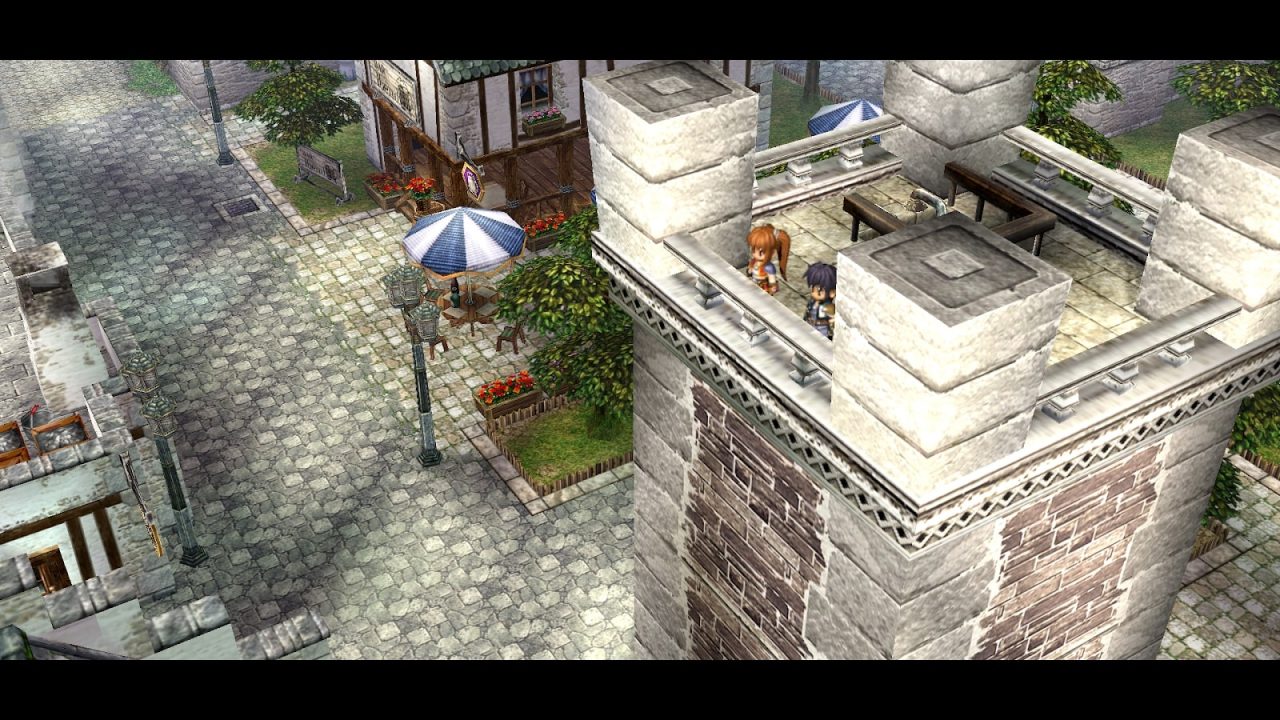
Trails in the Sky SC
Where to Play: PC (Review) | PSP (Review) | PS3/Vita (Japan only)
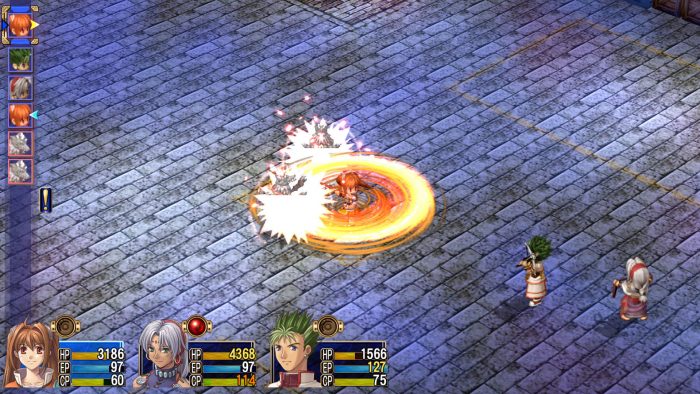
Trails in the Sky the 3rd
Where to Play: PC (Review) | PSP/PS3/Vita (Japan only)
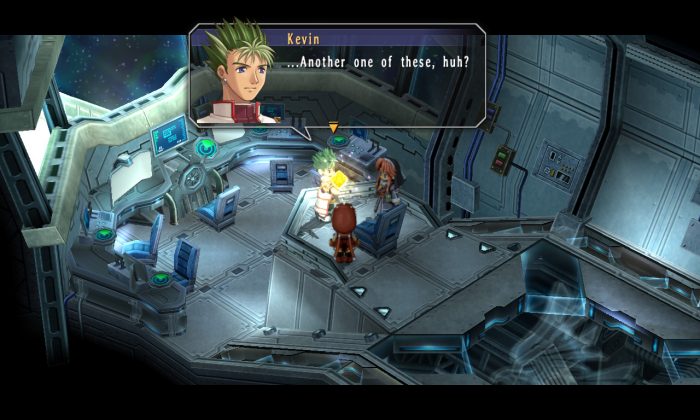
Crossbell Duology
This arc happens after Trails in the Sky the 3rd and includes Trails from Zero and Trails to Azure. In these games, you follow the Special Support Section police officers — Lloyd Bannings, Elie MacDowell, Randy Orlando, and Tio Plato — and their adventures in Crossbell as they attempt to navigate the growing political tensions over Crossbell State, deal with mafia groups that infest the city, and uncover the truth behind the mysterious death of Lloyd’s older brother three years ago. It may have taken a while, but fans in the West finally are able to get over the barrier that has long kept them from playing these games. Thanks to the hard work of the Geofront translation team and their partnership with NISA, we can now play Trails from Zero and Trails to Azure on modern platforms in the West.
Trails from Zero
Where to Play: PC (Review) | PS4/Switch
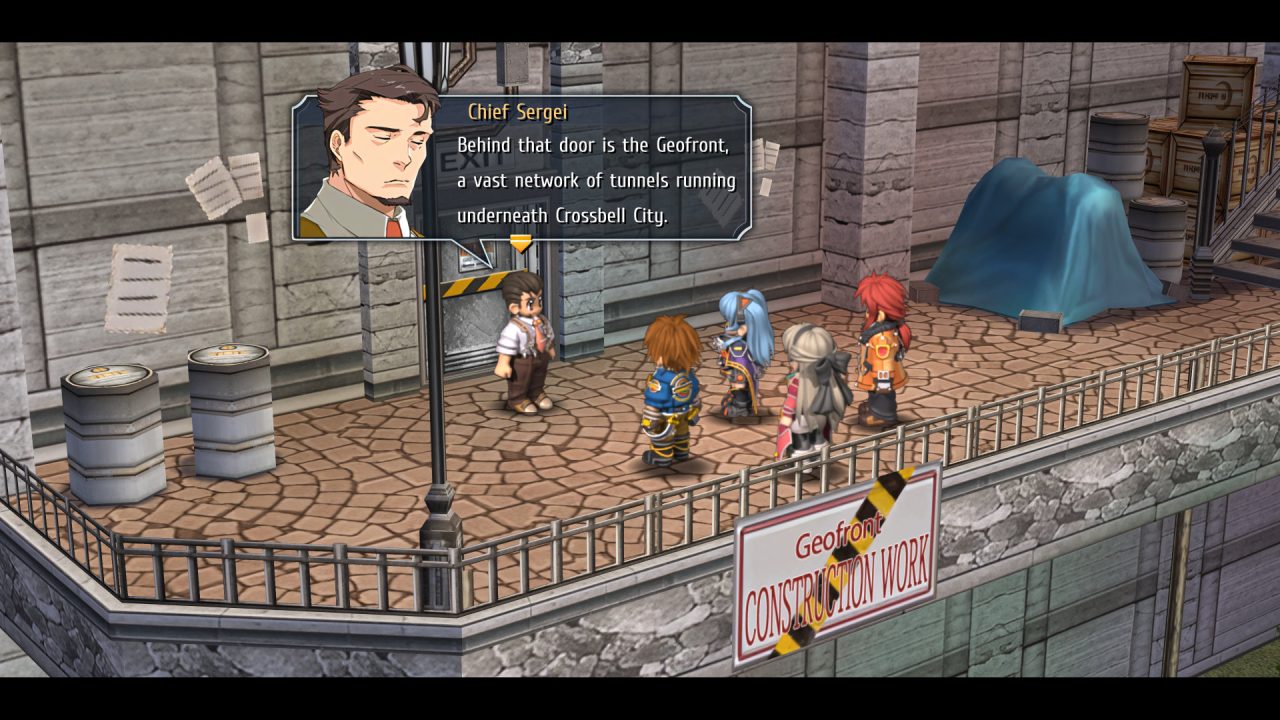
Trails to Azure
Where to Play: PC (Review) | PS4/Switch
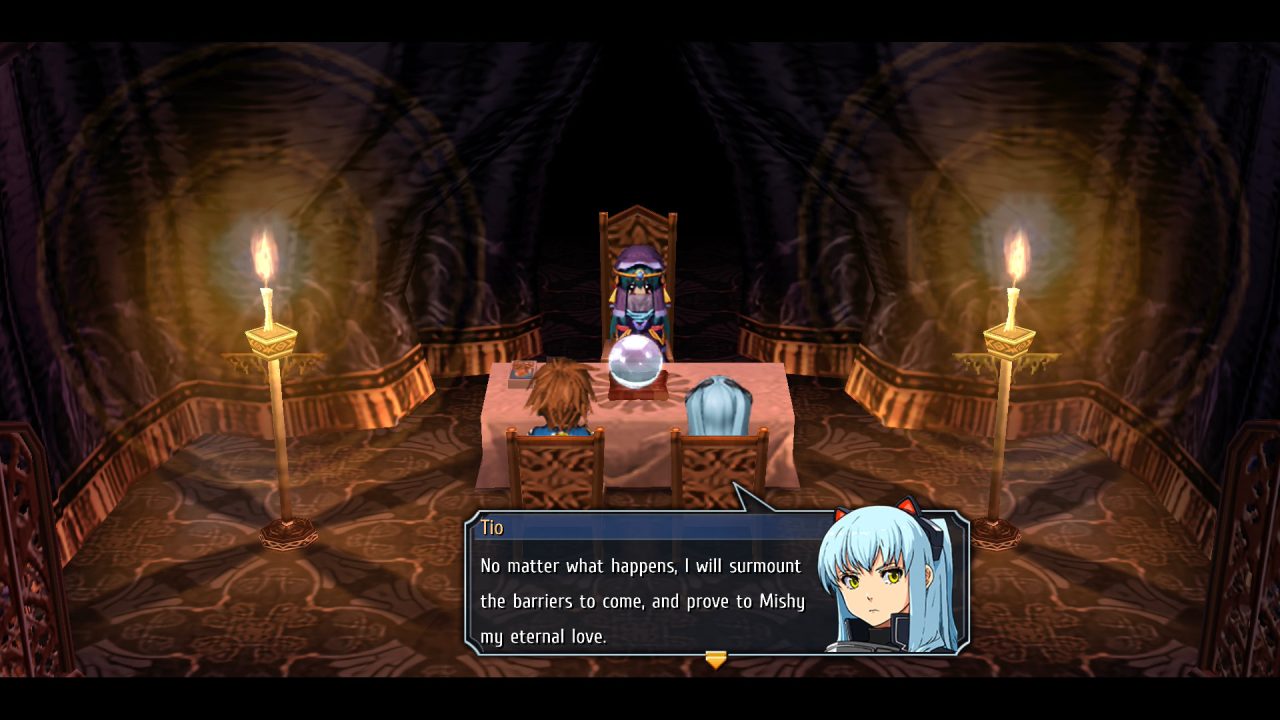
Trails of Cold Steel/Sen no Kiseki Quadrilogy
This is the next arc of the series and is broken down into two smaller duologies, the first being Trails of Cold Steel I and II, and the second being Trails of Cold Steel III and IV. Cold Steel I and II take place concurrently with the Crossbell games but are instead set in the neighboring country of Erebonia. These games star Rean Schwarzer and his classmates in Thors Military Academy’s Class VII as they attempt to understand and deal with the growing tension between the country’s aristocracy and the imperial government. Cold Steel III and IV take place roughly a year and a half after the events of Cold Steel II and still follow the life of Rean Schwarzer, this time not as a student of Thors, but as an instructor with his own class to guide through the turmoil within the Erebonian empire.
Trails of Cold Steel
Where to Play: PS3 (Review) | PC (Review) | Vita/PS4
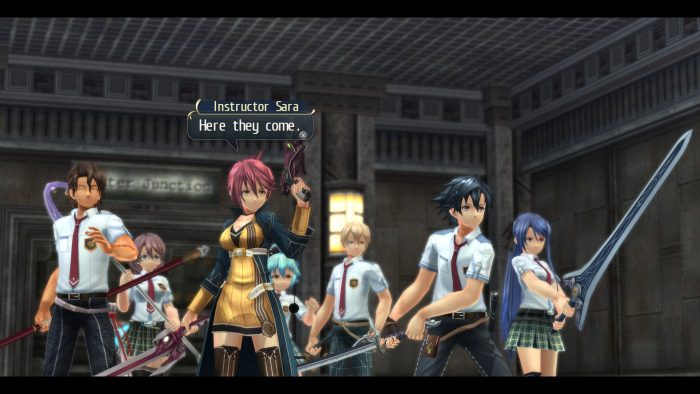
Trails of Cold Steel II
Where to Play: PS3/PC/PS4 | Vita (Review)
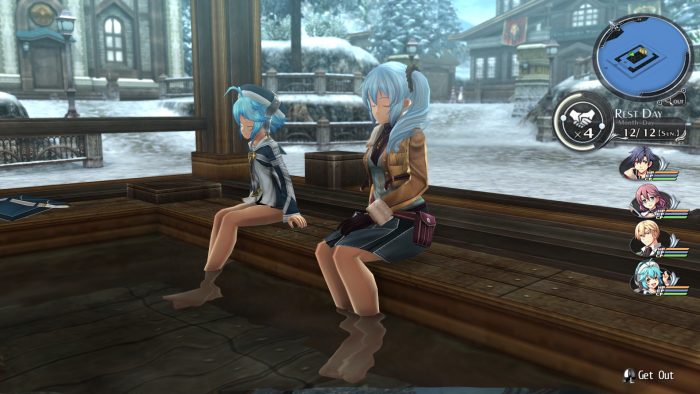
Trails of Cold Steel III
Where to Play: PS4 (Review) | Switch (Review) | PC
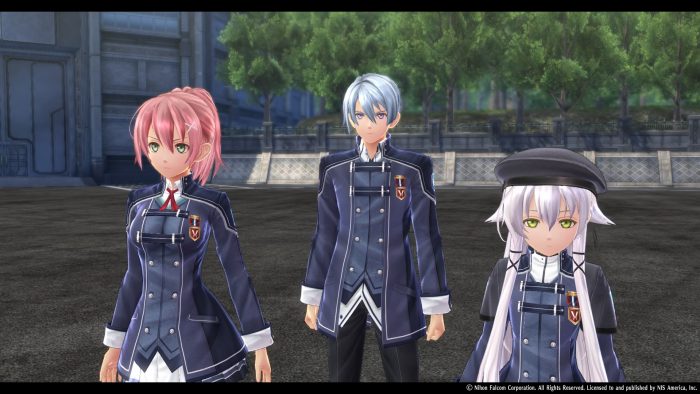
Trails of Cold Steel IV
Where to Play: PS4 (Review) | Switch (Review) | PC
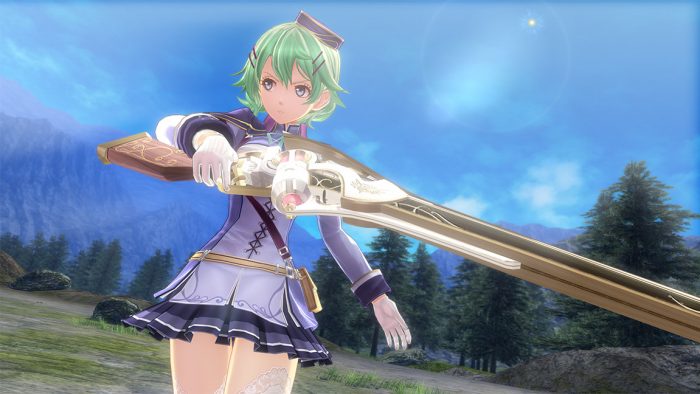
Trails into Reverie/Hajimari no Kiseki
Released on July 7th, 2023. Without spoiling things, Trails into Reverie, much like Trails in the Sky the 3rd, is a transitional game that ties up a lot of loose ends that both the Crossbell and Cold Steel arcs left hanging. It takes place a year after the events of Trails of Cold Steel IV and stars Lloyd Bannings, Rean Schwarzer, and a mysterious, masked third character named “C.”
Where to Play: PC/PS4/Switch (Review)

Trails through Daybreak/Kuro no Kiseki Duology
Trails through Daybreak (Kuro no Kiseki in Japan) and its sequel Trails through Daybreak II are the latest games in the series that recently released in Japan. Both games take place in the Calvard Republic a year after the events of Trails to Reverie following a group of heroes lead by protagonist Van Arkride. Some fan-favorite characters are returning as well! Kuro no Kiseki released in Japan on September 30th, 2021 and Kuro no Kiseki II -CRIMSON SiN- released September 29th, 2022.
In September 2023, NIS America revealed plans to localize the first game on July 5th, 2024 under the name The Legend of Heroes: Trails Through Daybreak. During Anime Expo in July 2024, and coinciding with the release of the first Daybreak game, NISA announced plans to bring Trails through Daybreak II West in early 2025.
Trails through Daybreak
Where to Play: PC/PS4/PS5 (Japan), PC/PS4/PS5/Switch (Western regions) (Review)
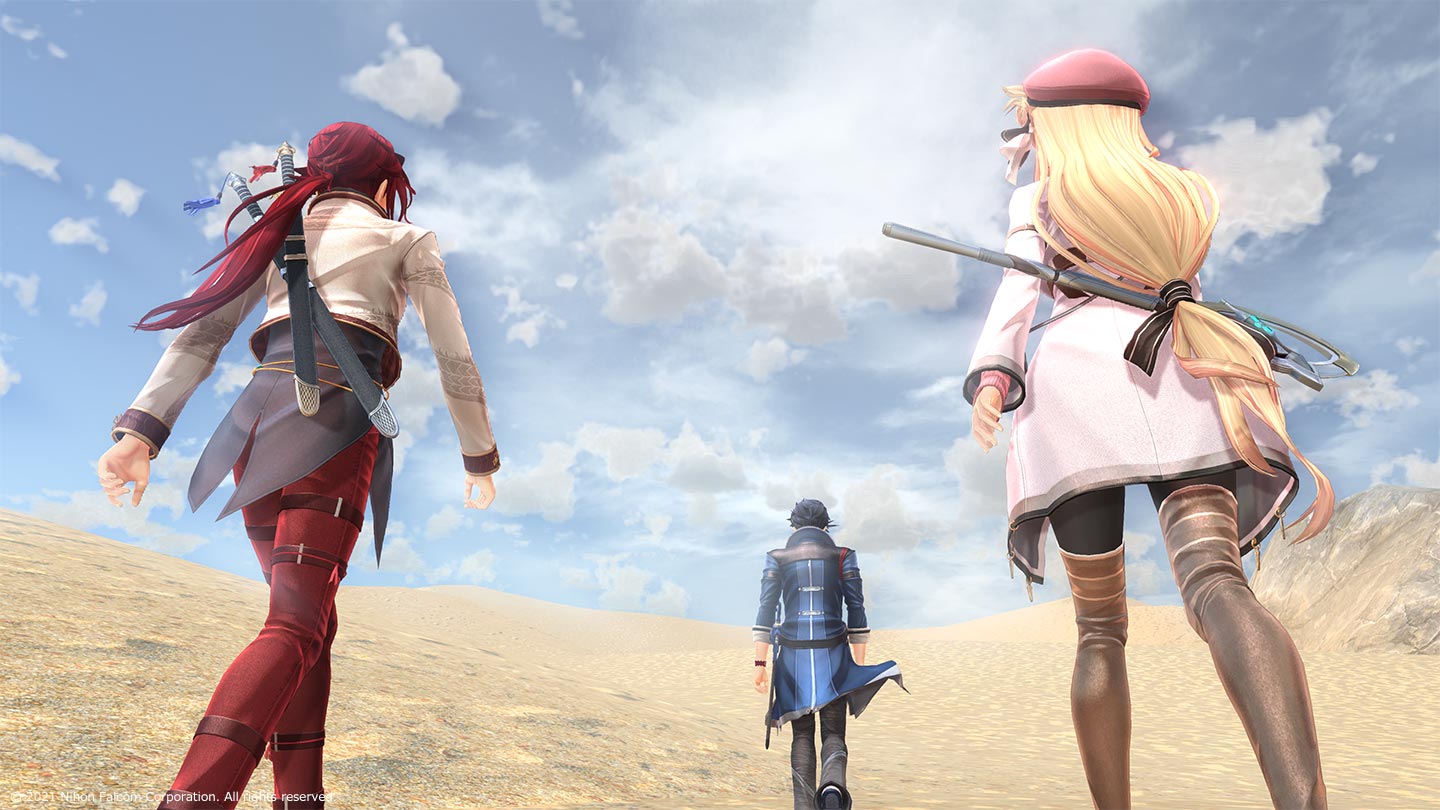
Trails through Daybreak II
Where to Play: PS4/PS5/Switch (Japan), PC/PS4/PS5/Switch (Western regions)
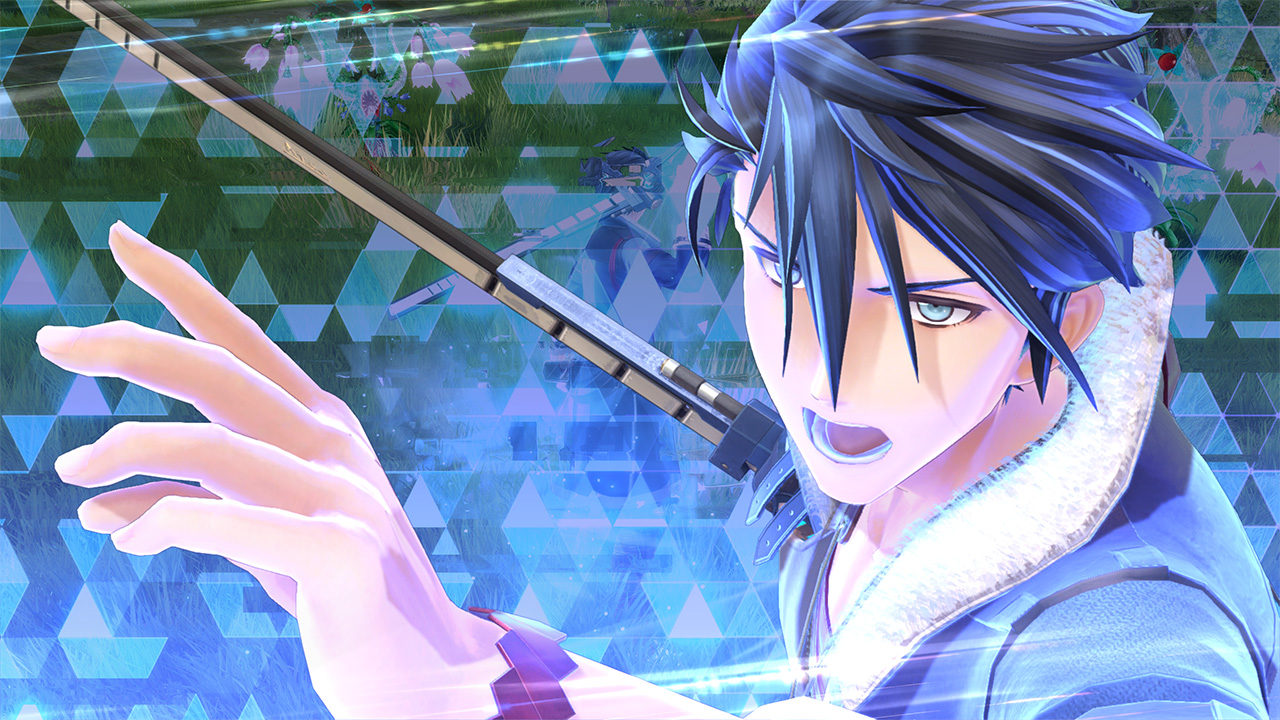
Series Timeline
So the timeline roughly looks like this when put together:

Map of Zemuria
The official current map of the world of Trails/Kiseki:
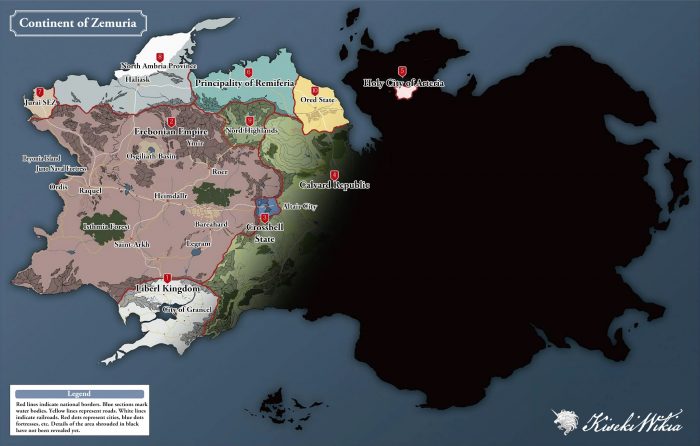
Should I play Trails/Kiseki?
Short answer, yes! Long answer, well that is a bit more complicated. Let me preface this by saying the Trails series is not for everyone. Every game is a very, very slow burn in terms of story and plot. Story payoffs often don’t happen until the last few hours of each game, and considering every entry features easily 60-100 hours of gameplay and dialogue, this can be a daunting task. But oh boy, the payoffs are so satisfying that the slow burns are absolutely worth it in the end.
To put this in perspective using my own experience with the series, I have owned Trails in the Sky since its 2014 release on PC and was very excited to play it when I first bought it. I am a very patient person when it comes to RPGs, but I tried at least five or six times to play Sky and stopped after Chapter 1 or 2 each time as I just wasn’t hooked, even after 10-20 hours. It wasn’t until May 2017, after I finished Persona 5, that I decided to sit down and play the first game since Trails in the Sky the 3rd had finally released in the West that month. I forced myself to sit through the whole game, and as the credits rolled, I bought and downloaded Trails in the Sky SC and the 3rd. After seeing the cliffhanger at the end of the first game, I was hooked. I played the rest of the localized games back to back over the next two months and just binged on the series.
So I tell everyone who wants to enjoy and get into this series that if you can make it to the end of Trails in the Sky or Trails of Cold Steel despite all the slow story and character development, you are in for a wild ride that doesn’t seem like it is going to end anytime soon.
Okay, so what order do I play these games in?
Congrats on reading this far…or scrolling down to the most important part of article! With eleven interconnected games, each featuring characters and plot lines from previous entries in the series, figuring out where to start can be a bit daunting. There is, of course, the option of playing in release order. But it’s worth noting that there are two potential starting points for the series (Trails in the Sky and Trails of Cold Steel) and thus, there are a few alternative play orders to consider, especially if you want to avoid spoilers for other games or if you’re worried about whether the older games will get you hooked. Two such alternative play orders are:
Trails in the Sky Trails in the Sky SC Trails in the Sky the 3rd Trails of Cold Steel Trails of Cold Steel II Trails from Zero Trails to Azure Trails of Cold Steel III Trails of Cold Steel IV Trails into Reverie Trails through Daybreak Trails through Daybreak II
or
Trails of Cold Steel Trails of Cold Steel II Trails in the Sky Trails in the Sky SC Trails in the Sky the 3rd Trails from Zero Trails to Azure Trails of Cold Steel III Trails of Cold Steel IV Trails into Reverie Trails through Daybreak Trails through Daybreak II
You can make a case for either of these play orders, and I will.
The first play order almost follows the release order of the games except for playing the Crossbell duology after Cold Steel and Cold Steel II. This makes the most sense if you want to enjoy the stories, references, and characters from previous entries that show up in the newer games to the fullest. The reason Crossbell goes after Cold Steel and Cold Steel II is because, as I said before, these games take place pretty much at the same time, but Zero and Azure spoil a lot more about what happens in Cold Steel and Cold Steel II than the other way around. You can’t avoid these duologies spoiling each other no matter what order you play them in, but in my opinion, this is the best way.
The second order is for players that enjoy more modern games to ease them into the series. Cold Steel has noticeably better graphics than the previous games (it was originally released on PS3 and Vita), a lot of English voice acting, and the whole high school setting and social link gameplay that Persona made popular. Trails in the Sky, on the other hand, is an old-style JRPG with beautiful sprite work and zero English voice acting outside of battle. It may be easier for modern JRPG fans to start with Cold Steel and Cold Steel II for these reasons, even if you won’t pick up on all the references or know who the returning characters in the series are yet. Cold Steel and Cold Steel II don’t spoil Sky all that much, and the odds are you won’t even realize you are being spoiled.
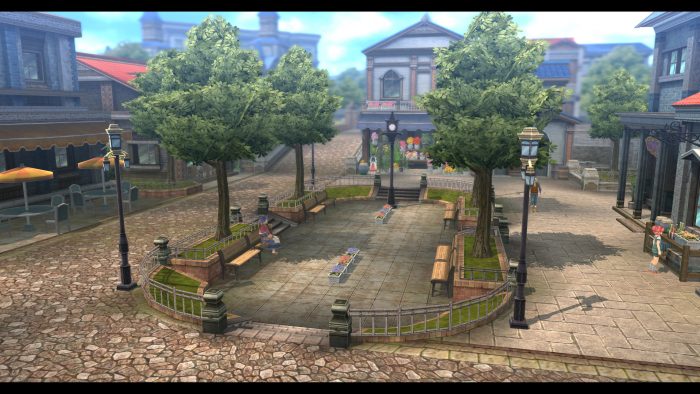
Can I just play the recent Cold Steel or Daybreak games and skip the rest?
You can, but I absolutely wouldn’t recommend it. Cold Steel III is essentially the Falcom equivalent of Avengers: Infinity War. It’s where all the characters and stories of the previous seven games come to a boiling point, and it leaves you with a huge cliffhanger. And then, of course, Cold Steel IV is basically Endgame, if you get my analogy. Chapter 1 of Cold Steel III spoils a lot of the Sky games, and Chapter 2 essentially spoils the big twist of the Crossbell games. You will enjoy Cold Steel III a thousand times more if you take your time and play through Sky and Crossbell first. As for Daybreak, from what I know so far and have been told, it is another good jumping on point for new comers to the series. I will judge this again after I have played it myself so expect an update to this article in the near future.
So there, I hope I answered everything I could about this series thus far. It’s a long series, and according to Falcom, it is only about 60% done, so we can expect six or so more games before it is all over, including Trails through Daybreak II, which released in Japan on September 29th, 2022 and coming West in early 2025. With official Crossbell localizations finally released along with Trails into Reverie and Trails through Daybreak, fans in the West will finally be able to play nearly the entire series without having to skip any. It has been a long road, but we finally got there! It is my hope that this article will encourage anyone who hasn’t played these games or has been sitting on the fence to finally take the plunge. If you are still on the fence, you can check these games out on our Twitch channel, where we play Trails games all the time! And then one day in early 2025, we can all sit in the Trails through Daybreak II waiting room together!
This feature was originally published on December 30th, 2019, and we revise it from time to time to be current with new info on the Trails series. Recent revisions:
- July 9th, 2024: Added new timeline image with localized name for Daybreak II, and updated other sections to reflect Daybreak‘s release and Daybreak II‘s announcement.
- September 24th, 2023: Added new timeline image to better illustrate the timeline between 1204–1205 and add Kuro no Kiseki II. Added info on Trails through Daybreak‘s platforms and localized name, link to Trails into Reverie review, and more minor updates.
- March 3rd, 2023: Added new details on Trails into Reverie, Kuro no Kiseki, Kuro no Kiseki II -CRIMSON Sin-, and more.

